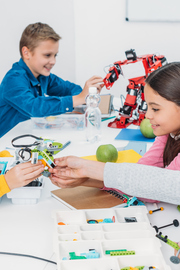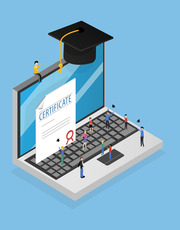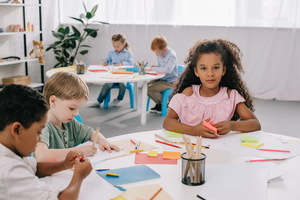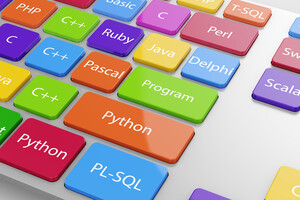Beyond the Books: How Language Immersion Transforms Learning for Kids
Language immersion is a powerful method for learning a new language. Quite simply, your child is placed in an environment where they must use the target language for daily communication. This approach goes beyond traditional classroom settings, allowing for a more natural and interactive learning experience.
Choosing London for this immersive experience offers a unique opportunity to dive deep into the English language’s rich cultural and historical background. Your child will have the chance to explore the city’s iconic landmarks. They will also interact with native speakers in their everyday environments, and participate in local traditions.
Language Learning Beyond the Classroom
The traditional boundaries of language learning are expanded when your child has the opportunity to learn English in London. This experience elevates their educational adventure. It offers them unparalleled exposure to the language in its most vibrant and dynamic form. Outside the confines of a classroom, English becomes not just a subject to be studied, but a living, breathing part of daily life.
Attending a summer school in London to learn English encourages your child to think, react, and interact in English, significantly improving their linguistic skills and confidence. The benefits extend beyond just linguistic proficiency; your child develops a global mindset, understanding diversity and cultural differences firsthand.
Engaging with people from all walks of life, experiencing the city’s eclectic mix of cultures, and navigating day-to-day situations in English contribute to a deeper, more empathetic understanding of the world.
How Immersion Encourages Cultural Understanding
Becoming part of British society, even for a short while, offers your child an immersive learning experience that textbooks cannot replicate. Through everyday interactions, from buying groceries at a local market to conversing with peers in the park, your child gains insights into the subtle aspects of British culture and etiquette.
This cultural immersion helps kids understand the context behind the language, making their communication more nuanced and effective.
Living and learning in London exposes your child to the rich tapestry of British history and traditions. Whether it is understanding the significance behind Bonfire Night or experiencing the solemnity of Remembrance Day, these cultural experiences provide a backdrop against which the language comes to life.
Everyday Activities That Enhance Language Acquisition
Engaging in everyday activities can dramatically enhance your child’s language acquisition. Simple tasks, such as reading local newspapers, watching British television, and listening to English music, can introduce them to various accents, dialects, and cultural references.
A variety of activities offer a fun and interactive way to familiarise themselves with the rhythm and flow of the native English language. It makes the entire process of learning feel less like a chore and more like an adventure.
Participation in local events and community activities further solidifies their language skills. By joining clubs or sports teams, your child can interact with native speakers in a relaxed and supportive environment. These interactions are invaluable for practising conversational English, picking up slang, and understanding idiomatic expressions.
The Role of Family in Supporting The Journey
The involvement of family is crucial in reinforcing the language learning process and providing emotional support and motivation. When your child embarks on a language immersion journey, the role you play extends beyond mere encouragement. You create a supportive environment that enhances their learning by showing interest in their progress, discussing what they’ve learned, and even participating in language activities together.
Your engagement demonstrates to your child the value of their efforts, fostering resilience and a positive attitude towards learning. Regular communication with educators and participation in community or school events related to the language can further enrich this experience.
From Learning to Mastery
Achieving mastery of a new language is a profound step towards becoming a global citizen. This journey from learning to fluency enables your child to communicate effectively across cultures, embrace different perspectives, and understand global issues. The skills acquired through language immersion, including adaptability, cultural sensitivity, and problem-solving, are invaluable in today’s interconnected world.
As your child progresses from learning English to mastering it in an immersive environment like London, they acquire more than just language skills. They develop a rich understanding of cultural nuances and global diversity, which are essential qualities of informed and compassionate global citizens.
Exploring the rich tapestry of the English language through immersive learning experiences offers your child an invaluable opportunity to grow both academically and personally. By stepping beyond the traditional classroom and diving into the culture and daily life of London, they gain a profound understanding of the language. It’s enhanced by the textures of real-world use and cultural immersion.
Encouraging your child to engage in this immersive linguistic adventure can transform their approach to learning English, making it a vibrant, living experience. It’s an investment in their future that extends far beyond mere academic achievement, paving the way for them to become insightful, culturally aware global citizens. This enriching journey, filled with learning and personal growth, promises to unlock doors to new opportunities and broader horizons.











 Explore the Safe Search Engine -
Explore the Safe Search Engine -